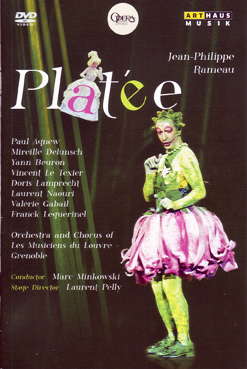Share |
Music: When Comedy Tonight is Mixed with Tears
By Frank Behrens
ART TIMES May/ June 2012
 |
Farce is supposed to be unfeeling. We laugh at, not sympathize with, the shrew Kate’s suffering at the hands of her new husband. (Or at least Shakespeare’s audience did.) We laugh at, not sympathize with, Dr. Bartolo’s losing his intended bride Rosina to the Count Almaviva in “The Barber of Seville.” And if the actor is good enough to make one sympathize, the audience can always say, “Well, he got what was coming to him through his own fault.”
And if we do sympathize with Rosina, Susanna and Figaro in “The Marriage of Figaro,” it is because Da Ponte did not treat it as a farce and Mozart’s music makes all of the characters human enough to deserve sympathy.
But take the case of “Don Pasquale,” in which the Don is foolish enough to desire a young bride. He is tricked into a false marriage with Norina, through the connivance of his “best friend,” Malatesta, and comes to a sad awakening. Norina is instructed to teach Pasquale a lesson, which she does immediately by bullying him and spending a great deal of his money on servants, jewelry, clothing, and what not.
Then comes the moment in which the Don stands up for himself and she slaps him. Donizetti’s music becomes suddenly subdued and seems to feel the pain and shame felt by the Don. Many audiences today gasp rather than laugh at the slap. After all, Pasquale’s fault was being foolish. He was never cruel to her; he never hurt her. Indeed, most Norinas play the scene as if they did not mean to go so far. Farce perhaps. But the slap seems far too real for comfort.
Recently I ran across a new (to me) opera on DVD, which had the opposite of the intended effect on me.
The plot of Rameau’s 1745 work “Platee” (say, plah-tay) concerns an elaborate and cruel prank played by the deities of Olympus upon a most unattractive human-like female frog or frog-like human female named Platee. That’s it. But this is not an opera but a “ballet buffon” and not meant to be taken seriously.
Taking it seriously is certainly not what the director had in mind for the production found on an ArtHaus DVD. Performed in 2002 at the Opera National de Paris, Palais Garnier, under the baton of Marc Minkowski, this 150-minute romp instantly starts with the chorus dressed in modern garb being shown to their seats in a theater’s balcony. Now since the brilliant costumes used in the time of Louis XV added so much to the spectacle—and since the use of modern dress in so many operas today has become the absurd norm—I instantly felt cheated and cared nothing for them.
Worse yet is dressing a character supposed to be Eros in his underwear and shoes, and then three male dancers in underpants and bras. Of course, we have no idea how Rameau handled the original costumes, but I am certain they were not as stupidly crude as those in this production. Two of the gods are dressed like Las Vegas emcees, but at least Juno looks like Juno. So, again, who can care for them?
Now, I have included all of that detail to point out the difficulty of feeling close to any character at all. And then something happened: Platee herself.
I felt for the poor frog-face just as I did for Carrie (in both film versions), when she was was made Queen of the Prom and then horribly humiliated. Poor Platee is played by tenor Paul Agnew, whose acting is so good under all that makeup that, although horribly vain, the character became appealing. How could she know how repulsive she was to the other characters? She has her glorious moments of final happiness when wooed by no less a personage than Jupiter — and then is let down with a terrible bump. I actually felt so bad about her deception (Agnew’s reactions, again, were so real under all that frog makeup), that I began to think of this as a tragedy. Yes, I know the character should have known better and was “rightly” punished for her vanity from the point of view of the French court in1745. But I have had in my life my share of humiliation; and I suppose that helped stimulate my sympathies for such a being.
Rameau’s original production, by the way, was severely criticized on the grounds that the music was far too grand for such a silly story. I can see why.
Feeling sorry for a frog? How silly. And yet…well, I don’t know. Oh, how thin is the line between comedy and tragedy in real life, let alone in an opera!
fbehrens@ne.rr.com
